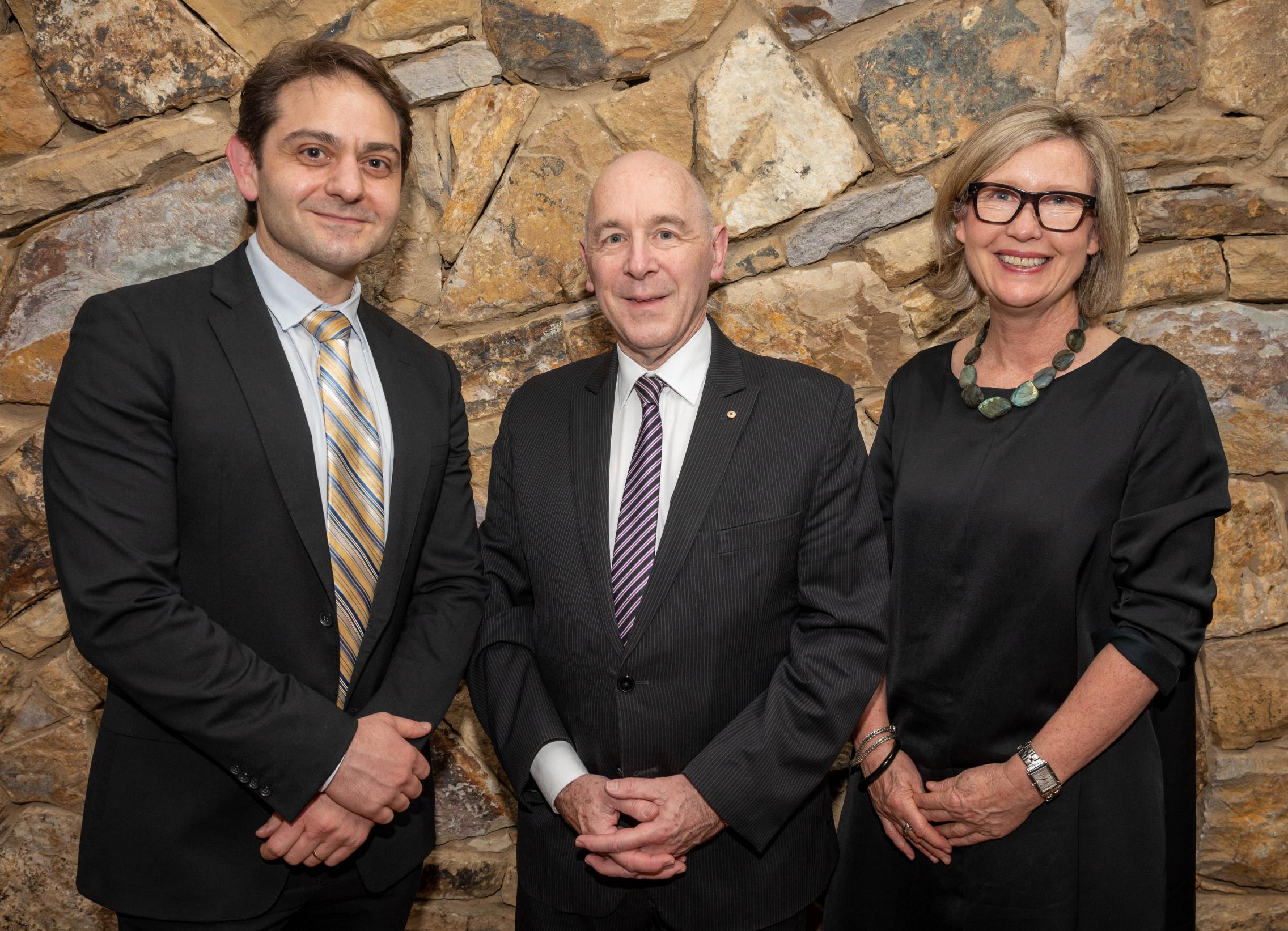
Three University of Adelaide researchers have been honoured in this year's National Health and Medical Research Council (NHMRC) Research Excellence Awards for their work in reproductive health, cardiology, and medical ethics.
Professor Sarah Robertson
Professor Sarah Robertson, from the University of Adelaide's Robinson Research Institute, was awarded the Elizabeth Blackburn Investigator Grant Award for her work in peri-conception determinants of reproductive and pregnancy health.
Professor Robertson's research focuses on the immune response to conception and pregnancy and consequences for reproductive success and offspring health. In partnership with industry, Professor Robertson's research has led to novel interventions for infertility and miscarriage.
She is an elected fellow of the Australian Academy of Science, the Australian Academy for Health and Medical Sciences and the Society for Reproductive Biology.
Disorders of reproduction and pregnancy affect more than 100,000 Australian families every year, leading to long-term health and wellbeing impacts for women, men and their infants. Professor Robertson and her team aim to define how maternal immune tolerance generated at conception protects against pregnancy loss and prevents preeclampsia, preterm birth, fetal developmental disorders and stillbirth.
The goal is to advance understanding of the biological mechanisms governing human reproduction, fertility and pregnancy health, to underpin new diagnostics for immune-based reproductive and pregnancy disorders and innovative therapies to improve these conditions. Ultimately, this investment will achieve better birth outcomes for families in Australia and around the world.
"I am deeply honoured to have this recognition for our work here at the Robinson Research Institute and The University of Adelaide,'' she said.
"The immune response is an important cause or contributing factor in many common fertility and pregnancy disorders - and we are confident that it holds the key to better treatments for these challenging conditions.
"The award reflects the huge effort from many talented students and research fellows in my amazing team - and it's a great incentive to keep striving for solutions to benefit women and their families."
Associate Professor Peter Psaltis
Associate Professor Peter Psaltis was awarded the Marshall and Warren Innovation Award for his work in defining a new player in atherosclerosis: the role of Adventitial Haemangioblasts as an 'outside-in' driver of plaque growth and stability.
Associate Professor Psaltis is an academic interventional cardiologist, who holds NHMRC Career Development and National Heart Foundation Future Leader Fellowships. He is Co-leader of the Lifelong Health theme and Leader of the Heart and Vascular Program at the South Australian Health and Medical Research Institute (SAHMRI) and Head of Acute and Interventional Coronary Services at the Royal Adelaide Hospital.
His bench-to-bedside research focuses on the developmental origins of tissue macrophages and endothelial cells, molecular and pharmacological regulation of atherosclerosis and the applications of stem cells in cardiovascular therapeutics.
Associate Professor Psaltis's project studies a new population of stem cells that his team discovered in the outer layer of arteries that can form both inflammatory cells (macrophages) and endothelial cells. His team is investigating how these unique stem cells contribute to plaque growth and instability to develop new therapies to treat atherosclerosis more effectively.
"I am extremely honoured and proud to receive the 2020 NHMRC Marshall and Warren Innovation Award. It's humbling recognition of the work that my team has done, and continues to do, in pursuing new treatment approaches to tackle atherosclerosis, which is the disease that causes hardening of the arteries and in turn heart attack and stroke, two of the leading causes of death and suffering around the world,'' he said.
"This particular award relates to our discovery of a unique type of stem cell in the wall of arteries. Our NHMRC grant will study how these stem cells cause atherosclerotic plaques to form in arteries, so that we can target them with new treatments for heart and vascular disease. I am especially grateful for the outstanding efforts that my group members have already contributed to this project, in particular University of Adelaide PhD student, Anna Williamson, and for the support of my collaborators from both Adelaide and interstate."
Professor Ian Olver AM
Professor Ian Olver AM was awarded the NHMRC Biennial Ethics Award, recognising his significant contribution to supporting the highest ethical standards in Australia in health and medical research.
NHMRC's Ethics Award recognises an individual, a group of individuals or an organisation who has made a significant contribution to supporting the highest ethical standards in Australia in health and medical research.
Professor Ian Olver has made a significant contribution to Australian health and medical research ethics over the last decade. As chair of NHMRC's Australian Health Ethics Committee, and as a valued member of NHMRC Council from 2012 to 2018, his balanced and considered leadership style and willingness to engage sensitively on tough issues have supported a wider understanding of the ethical impact of emerging health and medical research innovations and technologies.
"Research techniques are progressing so rapidly, it is vital that bioethics keeps pace and can accommodate innovation but deliver consistent advice,'' he said.
"It has been a privilege to accept the challenge of serving on and chairing The Australian Health Ethics Committee and to conduct research into end-of-life issues and consent, and a particular joy that this award is from my peers who have been part of several teams with whom I have worked."






